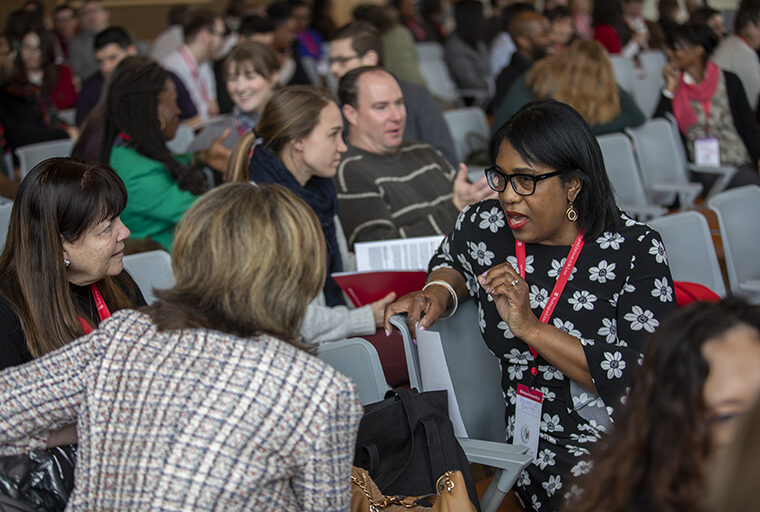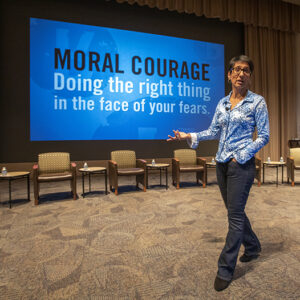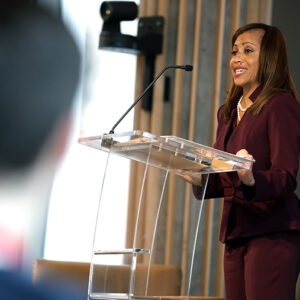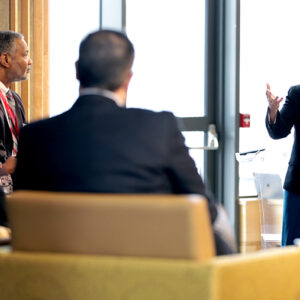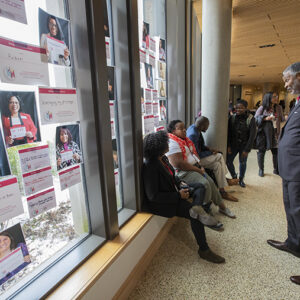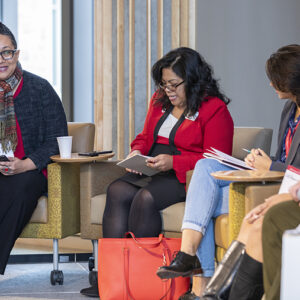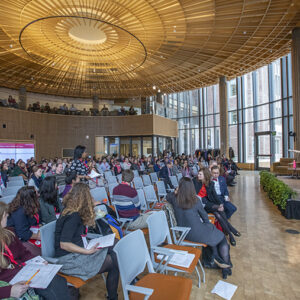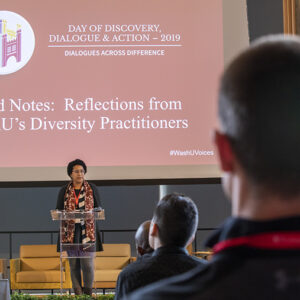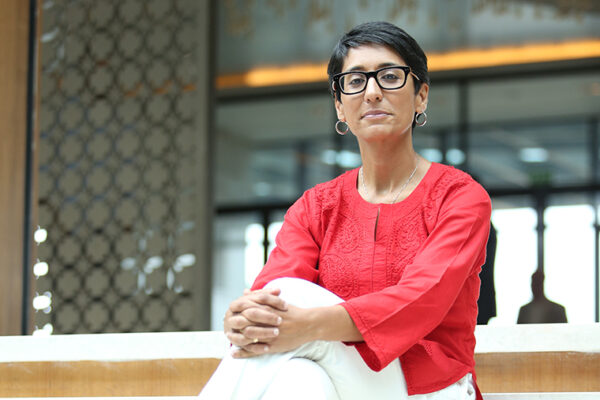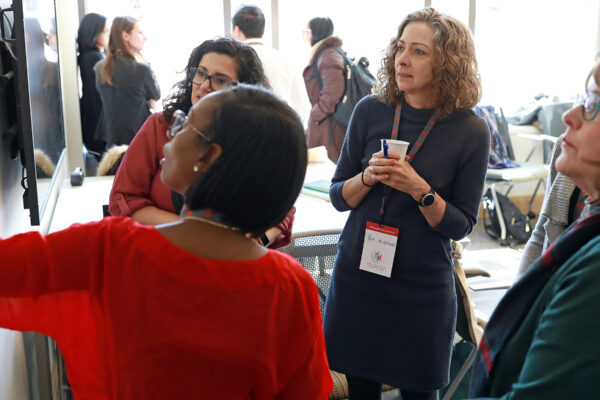“Questions are the soul’s way of saying, ‘I’m ready to grow.’”
That was one of the backdrops onstage for best-selling author, filmmaker and religious reformer Irshad Manji during her keynote presentation Feb. 19 that opened the fifth annual Day of Discovery, Dialogue & Action event at Washington University in St. Louis.
And over the course of the next 24 hours, there were questions, lots of them, by students, faculty, staff and administrators who pondered labels, perceptions, misconceptions, bridge-building and wall-shredding in an effort to foster honest communication during these challenging times.
This year’s theme was “Dialogues Across Difference” and Manji’s address kicked off a series of panel discussions and workshops that left participants with a tool kit for moral courage.
“Moral courage is not just about speaking truth to power,” Manji said from the Eric P. Newman Education Center on the Medical Campus. “Moral courage starts by speaking truth to our egos and by reminding ourselves that just as we are plural internally — many things at once — so is our ‘other’ many things at once.”
Established in 2015, the annual Day of Discovery, Dialogue & Action is an opportunity for members of the university community to come together to explore shared core values and to reaffirm the university’s commitment to diversity and inclusion.
“We live in challenging times,” Chancellor-elect Andrew D. Martin said in his opening remarks. “But that means we must challenge ourselves even more to rise above it and bridge our differences. As a university that stands for excellence and the endless discovery of truth, we must rise above it.”
The “I Am” Project, part of the fifth annual Day of Discovery, Dialogue & Action Feb. 20, took place in Hillman Hall and encouraged participants to label their social identities and, through a display of photographs and placards, demonstrate the myriad ways in which we are more alike than different. (Video: Tom Malkowicz/Washington University)
The second day of programing on Feb. 20 began with Martin’s announcement of the creation of a universitywide Center for the Study of Race, Ethnicity & Equity, a new inter- and transdisciplinary center that will bring synergy to research already underway and be a driving force for further scholarship and collaboration.
Lori S. White, vice chancellor for student affairs, opened with an appeal to move beyond labels and acknowledged that a few days of programming wouldn’t solve every problem, but that simply participating was a start.
Following a morning of panel discussions, opportunities to put lessons learned into practice were available, with a service fair in Goldfarb Commons and small workshops on subjects such as nonviolent communication; collaborative engagement in the St. Louis community; developing diverse teams; and deeper communication. Participants could take part in a screening of the film “The Color of Medicine” or visit the Gateway Arch and explore St. Louis history. Programming was available on the Medical Campus as well.
It was a 24-hour whirlwind of activity and learning, but none of it will mean anything if it stays within that time period. Nicole Hudson, assistant vice chancellor of the Academy for Diversity, Equity, and Inclusion, spoke on her role as head of the university’s primary forum for improving climate and culture among faculty and staff, but she summed up the event nicely:
“If we are to truly move forward as an institution, we can’t have one person, or one division of the university, acting as the source of all insight or the provider of all answers,” she said. “For us to move forward and create a more diverse, equitable and inclusive climate and culture, everyone has to be engaged in that effort.”
But she said there was much work to do: “I’m already looking forward to this event next year, seeing and sharing the progress we’ve made together — and aligning around the distance we still have to go.”
A slideshow of the event is below. To view the complete agenda for the event, or watch a recording of sessions on Feb. 19 and the morning of Feb. 20, visit the Voices website.
